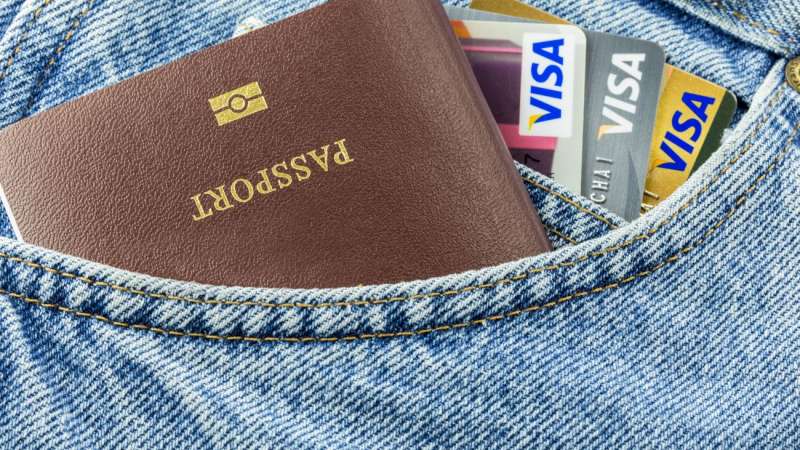How to Protect Your Credit While Traveling
Traveling can pose unique threats to your identity and financial information. Scam artists are especially keen to prey on tourists, and unfamiliar destinations can put you at risk of stepping into a trap. Here are a few tips for protecting your finances and information whether traveling abroad or road-tripping across the country.
Let Your Bank Know Your Plans
Before you start to travel, it’s a good idea to let your bank and credit card company know where you’ll be headed and for what dates. This will protect you from having your cards unexpectedly shut down due to suspicious-looking activity. It also helps the bank to identify the difference between real and fraudulent charges; If they know in advance that you’ll be in England, a set of charges made in Taiwan will be clearly suspicious.
Don’t Bring All Your Cards
When traveling, it’s a good idea to leave most of your credit cards at home. Bring just two and leave the second in a hotel room safe or other secure location. That way, you’ll only lose one credit card if someone steals your wallet. This can save you the hassle of having to call multiple carriers to report the theft, and it will limit the amount of damage that the thief can do.
Keep Track of Your Spending Activity
Consistently monitoring your spending while you’re on vacation does more than keep you within your budget, it also helps you to spot suspicious activity. If your information has been picked up by a card skimmer or other scamming device, you’ll be able to catch it quickly. If available, activate your card’s text alert feature to receive a text message whenever a purchase is made.
Be Careful with Free Wi-Fi
Avoid checking your financial information over unsecured servers. When you access your information on your phone, do so over your phone’s 4G connection rather than relying on the hotel’s wi-fi. Also, be sure that your phone’s security settings make it impossible for others to connect to it. If you use any public computers, such as in a hotel’s business center, wipe the cache and cookies before you log off.
Pay Attention to ATMs
Be on the look-out for any suspicious-seeming devices on public ATMs or other credit card machines you encounter. Some signs to look out for include: elements that are of a different color or material than the rest of the ATM, misaligned graphics, or other signs of tampering. If anything seems strange about the card slot, inspect it carefully or look for a different ATM. Be sure to cover the keypad every time you enter your PIN in case there are hidden cameras or suspicious people nearby. In general, ATMs inside of banks will be more secure than those outside as thieves will have a harder time tampering with them.
Watch Out for Pickpockets
Pickpockets are a common problem in most large cities, and they are especially common in some foreign countries where tourists are easy to prey on. You can protect your cards and cash by keeping them in a money belt. It’s also generally a good idea to keep your cards and cash in separate locations on your person, such as different pockets. Wallets kept in hip pockets will be harder to steal than those kept in your back pocket; pockets inside of a zippered jacket are also very secure. Finally, avoid the temptation to check your pocket frequently to be sure the money is still there. Pickpockets watch potential victims for this behavior and will target you once they know what pocket you’re keeping the cash or wallet in.
Use a Credit Card Instead of a Debit Card
In general, credit cards have better fraud protection and an easier dispute process when unwanted charges are made with them. Additionally, a thief will only be able to charge up to the credit limit; someone with access to your debit card could easily drain your entire bank account. If you choose to travel with a credit card that has a points system, you can earn rewards during your travel while keeping your finances safe at the same time.

Hatchapong Palurtchaivong / Shutterstock.com
Advertisement












